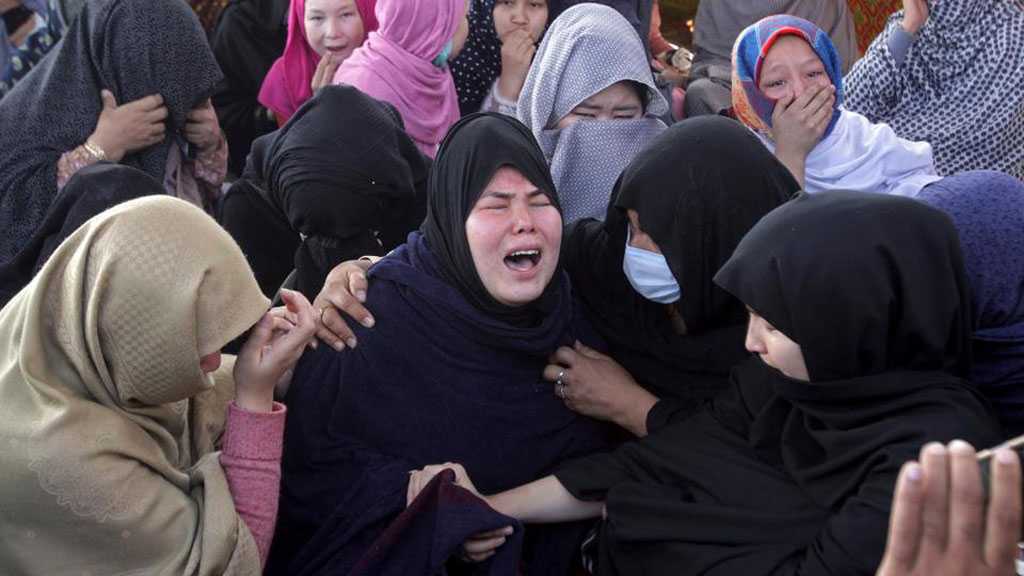The murder spree has gone on for years. People belonging to Pakistan’s ethnic Hazara minority have been attacked in their homes, in shops, in mosques, at the doctor’s clinic, inside a snooker club and picked out from among other passengers on busses, forced to line up and summarily executed.
A similar episode played out again on January 3 when 11 Hazara miners were killed in the troubled Balochistan province. Daesh [ISIS/ISIL] claimed responsibility for the grisly incident in which the hands of the victims were bound and then their throats slit. A video of the killing was later uploaded on the internet.
Hazaras, most of whom ascribe to the Shia Muslim faith, have been relentlessly targeted in the past two decades. More than 2,000 people have been killed in suicide bombings and drive-by shootings between 2004 and 2018.
“We want these killings to end. That’s all we want. We are tired of burying our loved ones. All we want now is Prime Minister Imran Khan to come and give us surety that this won’t happen again,” Syed Abbas Ali, a member of the Hazara community, told TRT World from Quetta, Balochistan’s capital.
Hundreds of people have joined a sit-in protest on a highway near Quetta. They have placed the coffins there and refused to bury the dead until Khan comes to meet the families.
“Several government officials have met us. But that doesn’t mean anything. Whenever something like this happens, they come and give us the same assurances. It has done little to stop the cycle of violence,” says Ali.
Khan has refused to go personally and meet the mourners at the time of writing, promising that he will do so later. His decision along with the statement of one of his advisors, which was widely seen as being insensitive, has angered many.
Protests against the killings have also erupted in other cities including Karachi.
Most of the Hazara population, generally recognizable for their distinctly Central Asian facial features, is centered around Quetta. The size of the community is estimated to be around 800,000.
For years, Pakistan’s security forces have battled separatist insurgents in Balochistan, which borders Iran and Afghanistan. Sectarian militant group Lashkar-e-Jhangvi which openly call the Shia heretics is also behind a spate of terrorist attacks.
The miners were living in makeshift quarters near a coalfield, located some 60km from Quetta, leaving them particularly vulnerable to such an attack, Zafar Baloch, a local journalist, told TRT World over the phone.
“A number of terrorist attacks against the Hazara community have come down in the last few years. The situation was really bad up till 2013 when someone was being targeted every 4-5 days.”
The year 2013 was particularly devastating for Hazara community. More than 175 people were killed in back-to-back bombings in January and February. In one incident, a suicide bomber killed scores of young men at a snooker club. When rescue services began evacuating the injured, an ambulance laden with explosives exploded, killing more.
Islamabad has deployed around a thousand paramilitary troops and police for security. But that has limited the movement of many Hazara people who are confined to a few areas such as Hazara Town or Alamdar Road in Quetta city.
Security escorts are needed whenever pilgrims travel by road to Iran where several Shia shrines are located. Even vegetable vendors need armed protection when they travel to the wholesale market.
The fear of being shot dead has forced thousands of young men to make their way towards Southeast Asia and then take the dangerous sea journey on rickety boats to seek refuge in Australia. Many have sold their businesses and moved to other cities in Pakistan.
A sizable Hazara population also lives in neighboring Afghanistan where thousands of them have been killed by the Taliban.
According to some reports, there were some Afghans among the dead miners. Abbas Ali says making an issue of the nationality of the victims undermines the severity of the situation.
“Does it matter where they came from? The fact is they were brutally murdered and we should all be condemning it.”













No comments:
Post a Comment